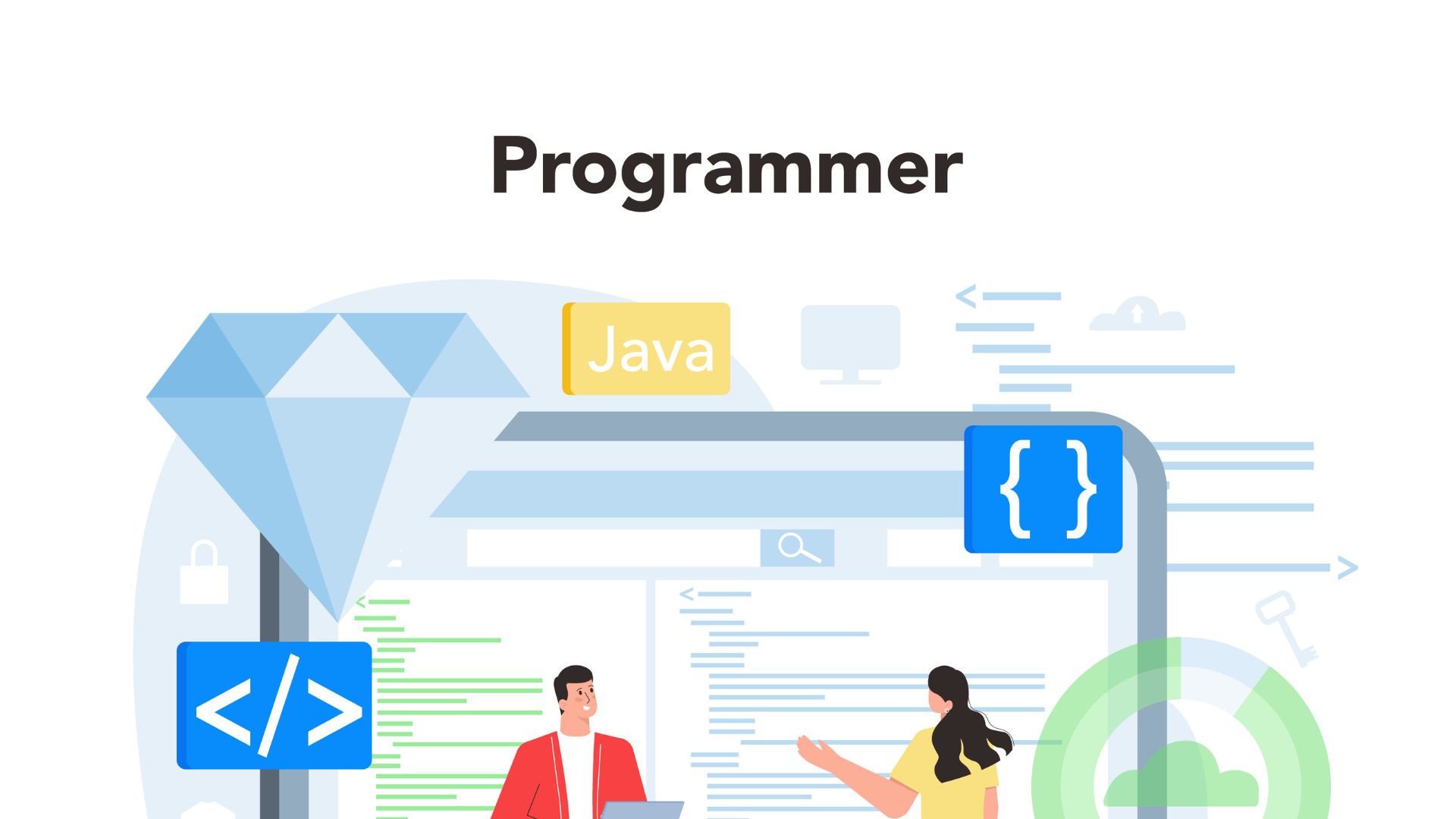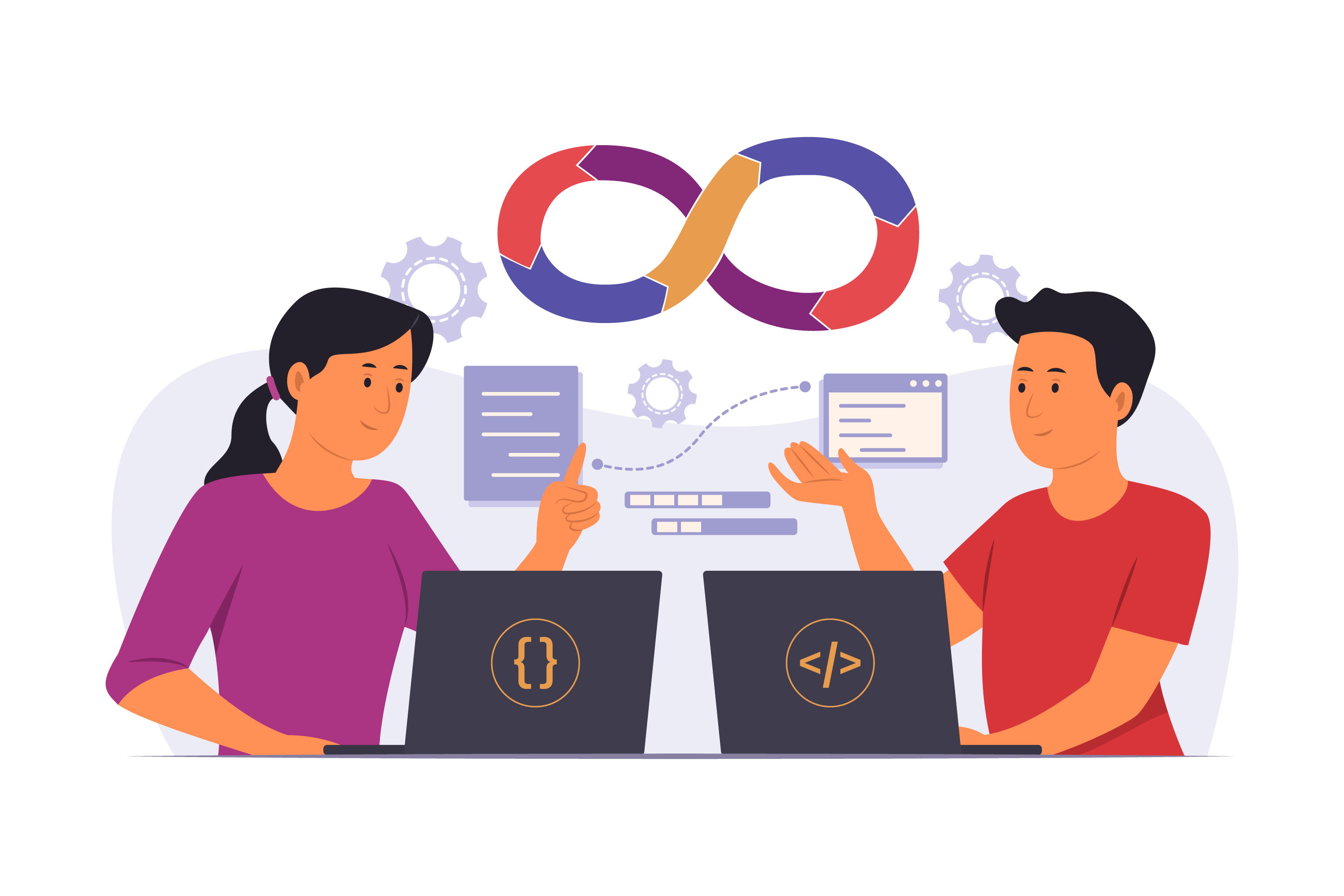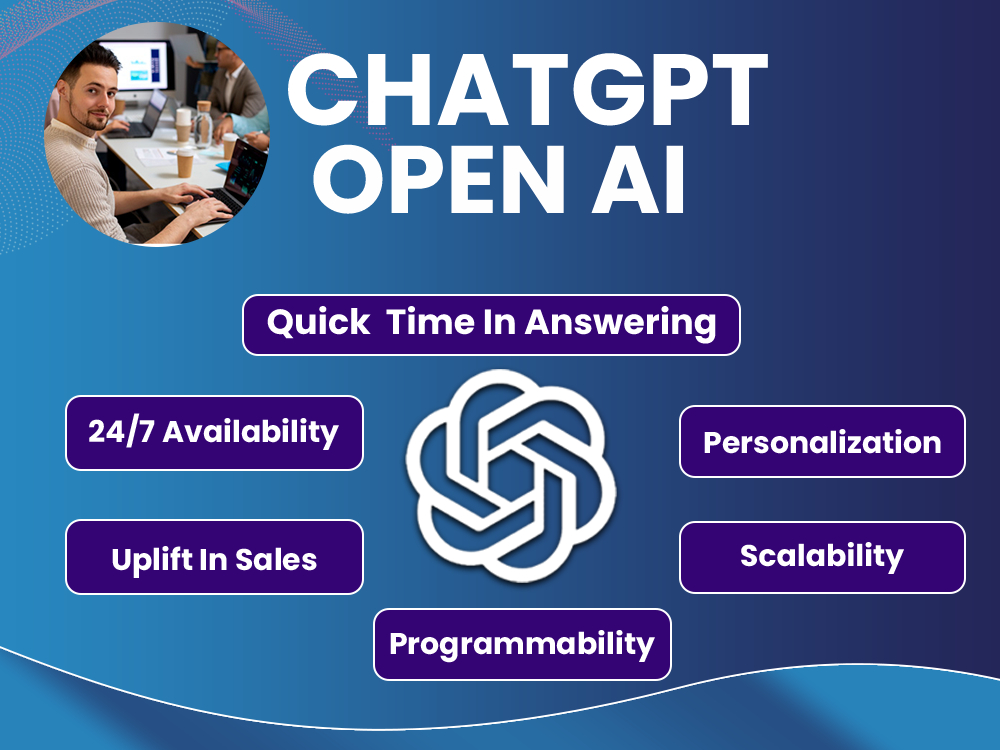
the terms “coding” and “programming” are frequently used interchangeably, often blurring the lines between their meanings. However, beneath this surface similarity lies a crucial distinction that profoundly shapes the realms of software development and computer science. At its core, coding entails the translation of human-readable instructions into a language that computers can comprehend and execute. It involves the meticulous crafting of lines of code using programming languages such as Python, Java, or C++. Coding is akin to constructing the individual building blocks of a structure, focusing on the precise implementation of predefined tasks.
On the other hand, programming extends beyond mere coding, encompassing a broader spectrum of activities and skills. It involves not only the creation of code but also the conceptualization, design, and implementation of algorithms to solve complex problems. Programming requires strategic thinking, logical reasoning, and the ability to devise efficient solutions to intricate challenges. It is akin to the architect envisioning the entire edifice, considering the interplay of various components to construct a cohesive and functional structure.
The disparities between coding and programming become evident when considering their scopes, complexities, and purposes. While coding represents a subset of programming, it primarily focuses on the translation of instructions into executable code. It is a foundational skill, essential for implementing predefined tasks and functionalities within software systems. Conversely, programming encompasses the entire process of problem-solving and software development, requiring a deeper understanding of algorithms, data structures, and computational principles.
In essence, coding serves as the toolset, enabling programmers to express their ideas and solutions in the language of computers. It is the means through which concepts are transformed into tangible realities, laying the groundwork for innovative technologies and applications. Understanding the difference between coding and programming is paramount for individuals venturing into the realm of technology. It equips them with the knowledge and insight necessary to navigate the intricacies of software development, empowering them to tackle complex challenges and contribute meaningfully to the ever-evolving landscape of technology and innovation.
Coding vs Programming
Coding and programming, though often used interchangeably, represent distinct yet interconnected aspects of software development and computer science. At its core, coding involves the translation of human-readable instructions into a format that computers can comprehend and execute. This process typically entails writing lines of code using programming languages such as Python, Java, or C++. It’s akin to providing step-by-step directions to a computer, instructing it on how to perform specific tasks or functions.
On the other hand, programming encompasses a broader spectrum of activities. It not only involves writing code but also entails designing algorithms, solving complex problems, and implementing efficient solutions. Programming requires a deeper understanding of computational logic, data structures, and algorithmic thinking. It’s about crafting solutions to intricate challenges by leveraging the power of technology.
While coding serves as a foundational skill within programming, programming extends beyond mere coding to encompass the entire process of conceptualizing, designing, implementing, and refining software solutions. Therefore, while coding may be viewed as the language of computers, programming embodies the art and science of leveraging technology to solve real-world problems.
Understanding the nuances between coding and programming is essential for anyone aspiring to excel in the field of technology, as it lays the groundwork for proficiency in software development and computational problem-solving.
Table of Contents
Coding definition and examples
Coding, in essence, is the process of translating human-readable instructions into a language that computers can understand and execute. It involves writing lines of code using programming languages such as Python, Java, or C++. To illustrate, imagine you’re creating a simple program that calculates the sum of two numbers.
In coding this program, you would write instructions like “store the first number in a variable,” “store the second number in another variable,” and “add the two variables together.” These instructions, written in a programming language, are then translated by the computer’s compiler or interpreter into machine-readable instructions that the computer can execute. Essentially, coding is akin to giving commands to a computer in a language it understands, enabling it to perform various tasks and functions.
Whether it’s developing websites, mobile apps, or software applications, coding serves as the backbone of modern technology, empowering developers to bring their ideas to life through lines of code.
Programming definition and examples

Programming is the art and science of designing, implementing, and maintaining software systems. It involves not just writing lines of code, but also conceptualizing complex algorithms, solving intricate problems, and creating efficient solutions to real-world challenges. At its core, programming is about translating abstract concepts into concrete instructions that computers can understand and execute.
For example, a programmer might develop a web application that allows users to interact with a database, retrieve information, and perform various tasks seamlessly. Another example could be the creation of a video game, where the programmer designs algorithms for gameplay mechanics, implements graphics rendering techniques, and optimizes performance for a smooth gaming experience.
In essence, programming empowers individuals to harness the power of technology to innovate, automate tasks, and improve efficiency across various domains, from business and finance to healthcare and entertainment.
Understanding Coding
Understanding coding is essential for anyone interested in delving into the realm of technology and software development. At its core, coding involves the translation of human-readable instructions into a language that computers can comprehend and execute. It’s the process of writing lines of code using programming languages like Python, Java, or C++, each with its own syntax and rules. Coding is akin to crafting a blueprint for a digital structure, where every line of code serves as a building block for creating software, applications, websites, and more.
However, coding is not merely about typing lines of code; it requires logical thinking, problem-solving skills, and attention to detail. It’s about breaking down complex problems into manageable tasks and implementing efficient solutions through programming languages. Whether you’re a beginner learning the basics of coding or an experienced developer working on intricate projects, understanding coding is the foundation upon which all software development endeavors are built. It’s the language that enables humans to communicate with computers, bridging the gap between ideas and execution in the digital world.
Understanding Programming
Understanding programming goes beyond mere coding; it encapsulates a multifaceted approach to problem-solving and innovation in the digital landscape. Programming involves not only writing lines of code but also conceptualizing and designing solutions to complex problems. It requires a deep understanding of algorithms, data structures, and computational logic.
Programmers must possess analytical thinking skills to break down problems into smaller, more manageable components, devising efficient strategies to tackle them. Moreover, programming entails continual learning and adaptation, as technology evolves rapidly, necessitating programmers to stay abreast of the latest developments and methodologies.
Successful programming entails more than just technical proficiency; it also demands creativity, ingenuity, and an aptitude for critical thinking. Ultimately, programming is about crafting elegant solutions to real-world challenges, leveraging technology to drive innovation and progress in society.
Key Differences
The key differences between coding and programming lie in their scope, complexity, and purpose. Firstly, coding primarily involves the translation of human-readable instructions into machine-executable code. It’s the process of writing specific lines of code using programming languages like Python or Java to perform predefined tasks. On the other hand, programming encompasses a broader spectrum, extending beyond mere coding.
It involves conceptualizing solutions, designing algorithms, solving problems, and implementing efficient strategies to tackle complex issues in software development. Programming requires strategic thinking, algorithmic design, and problem-solving skills, making it a more intricate and multifaceted process compared to coding. Moreover, while coding is often associated with the implementation of predefined tasks, programming involves creating solutions for various challenges, ranging from simple algorithms to complex software systems.
Understanding these distinctions is vital for anyone delving into the world of technology, as it enables individuals to approach software development with a comprehensive understanding of the processes involved, ultimately leading to more effective and efficient solutions.
Coding vs programming comparison

In the vast landscape of computer science and software development, the comparison between coding and programming unveils a nuanced understanding of two integral components of the digital world. Coding, often perceived as the initial step in the software development process, involves the translation of human instructions into machine-readable code.
It’s akin to the language spoken between humans and computers, where syntax, logic, and precision play pivotal roles. Coders meticulously craft lines of code using programming languages like Python, Java, or C++, shaping raw concepts into functional software components.
On the other hand, programming encompasses a broader spectrum, transcending the mere act of writing code. It encapsulates the entire process of problem-solving, from conceptualization to implementation. Programmers delve into the intricacies of algorithmic design, devising efficient solutions to complex challenges.
They architect the logic behind software systems, weaving together multiple modules and functionalities to create cohesive applications. Programming demands not just technical proficiency but also creativity, critical thinking, and adaptability, as programmers navigate through ever-evolving technological landscapes.
The disparity between coding and programming lies not only in their scope but also in their underlying principles and objectives. While coding constitutes a crucial subset of programming, it represents the tactical execution of predefined tasks. It involves translating specific instructions into executable code, adhering to the syntax and rules of a particular programming language.
In contrast, programming transcends the realm of instruction-following, requiring a holistic approach to problem-solving. It involves analyzing problems, designing algorithms, and architecting scalable solutions that address real-world needs.
Ultimately, the distinction between coding and programming underscores the multifaceted nature of software development. While coding serves as the bedrock upon which programs are built, programming embodies the art and science of crafting elegant, efficient solutions to intricate problems.
Understanding this dichotomy is essential for aspiring developers and tech enthusiasts alike, as it empowers them to navigate the dynamic landscape of technology with clarity and confidence. Whether one aspires to be a proficient coder or a seasoned programmer, recognizing the nuances between coding and programming is paramount to success in the ever-evolving digital age.
Coding and programming explained
Coding and programming are often used interchangeably, but they represent distinct aspects within the realm of software development and computer science. Coding involves the translation of human-readable instructions into machine-understandable code. It’s akin to writing a recipe, where each line of code represents a specific action or instruction for the computer to execute. Programming, on the other hand, encompasses a broader set of skills and tasks.
It involves not only writing code but also designing algorithms, solving complex problems, and optimizing solutions for efficiency and performance. Programming requires a deeper understanding of computational logic, data structures, and algorithmic thinking. It’s about approaching problems systematically, breaking them down into manageable components, and devising elegant solutions through code.
While coding is an essential part of programming, programming extends beyond mere coding to encompass the entire process of software development, from conceptualization to implementation and beyond. In essence, coding is like building individual bricks, while programming is akin to architecting and constructing entire buildings.
Understanding the distinction between coding and programming is crucial for aspiring developers and tech enthusiasts, as it lays the foundation for mastering the intricacies of software development and unleashing creative potential in the digital landscape.
Conclusion
In conclusion, the differentiation between coding and programming holds significant importance in the landscape of technology and software development. While they are often used interchangeably, recognizing their distinctions provides clarity and depth to one’s understanding of computer science.
Coding, with its focus on translating instructions into executable code, serves as the foundation upon which programming builds. It involves mastering the syntax of programming languages and implementing specific tasks. On the other hand, programming encompasses a broader spectrum, requiring not only the ability to code but also the aptitude for problem-solving, algorithm design, and system optimization.
Understanding these disparities empowers individuals to approach technology with a more comprehensive perspective, enabling them to tackle diverse challenges and innovate solutions effectively. Moreover, discerning the nuances between coding and programming fosters a deeper appreciation for the intricacies of software development and encourages continuous learning and growth within the field.
Ultimately, by embracing the disparity between coding and programming, individuals can embark on a journey of exploration and mastery, contributing to the ever-evolving landscape of technology with confidence and proficiency.
FAQs About Coding vs Programming: What’s the Difference?
- Is coding the same as programming?
- While coding is a subset of programming, the two terms are often used interchangeably. Coding refers to writing instructions in a specific programming language, whereas programming encompasses a broader set of activities, including problem-solving and algorithm design.
- What skills do I need to become a coder?
- To become a coder, you need proficiency in a programming language, attention to detail, and the ability to follow instructions accurately. Problem-solving skills and a willingness to learn new technologies are also beneficial.
- How can I start learning to code?
- There are many online resources available for learning to code, including interactive tutorials, coding bootcamps, and online courses. Choose a programming language that aligns with your interests and career goals, and practice regularly to hone your skills.
- What are some common programming languages used in the industry?
- Common programming languages used in the industry include Java, Python, JavaScript, C/C++, and Ruby. The choice of language depends on the specific requirements of the project and the preferences of the development team.
- What is the future outlook for careers in coding and programming?
- Careers in coding and programming are expected to remain in high demand as technology continues to advance. With the increasing adoption of AI, machine learning, and automation, there will be ample opportunities for skilled coders and programmers in various industries.


